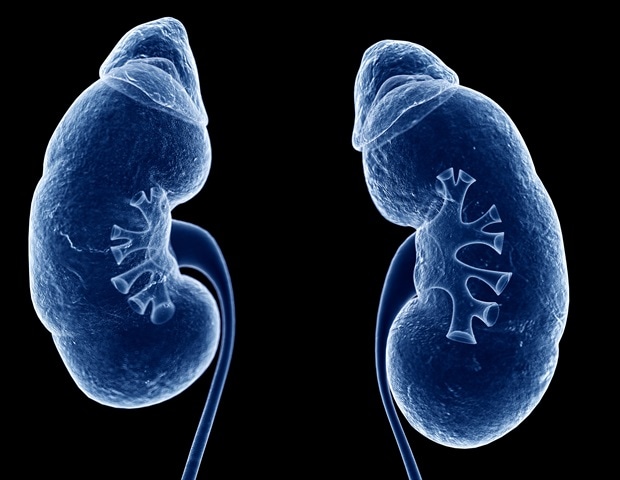
Idiopathic nephrotic syndrome (INS) is a serious kidney disease in children with no clear cause. In a recent study, researchers have identified a novel autoantibody targeting vinculin—a protein crucial for kidney cell structure—as a significant factor in INS. The study found that these autoantibodies are present during active diseases and decline when symptoms subside, suggesting potential for diagnosis and disease monitoring. Mouse models were further used to validate these findings.
Idiopathic nephrotic syndrome (INS), particularly prevalent in children, is a kidney disorder marked by severe protein loss in the urine and low blood protein (albumin) levels. Growing body of research has shown that autoantibodies, or antibodies produced by the immune system that mistakenly target the body’s own cells and proteins against podocytes may play a role in INS, but the precise underlying mechanisms remain elusive.
Now, however, a study by researchers from Zhejiang University, China, sheds light on this mystery by identifying a previously unrecognized immune factor: autoantibodies targeting vinculin, a key structural protein present in kidney cells. Their findings were published online in Research on June 3, 2025. The research team was led by Dr. Hanyan Meng from the Department of Nephrology, Children’s Hospital, Zhejiang University School of Medicine, China, sought to investigate the pathogenic role and underlying mechanisms of anti-vinculin autoantibodies in INS.
What exactly is vinculin, and why does it matter in kidney health? Vinculin is a protein that plays an important role in cell adhesion and cell mobility. These proteins are particularly found in podocytes and critical for podocyte cytoskeletal integrity. Anti-vinculin autoantibodies—the body’s own antibodies that attack vinculin—can cause damage to the kidney’s filtering cells.
By analyzing serum samples from across 147 children with INS, the researchers discovered significantly elevated levels of anti-vinculin autoantibodies compared to healthy and disease control groups.
“These antibodies were present in over half of the INS patients and closely correlated with the clinical markers of disease severity, including cholesterol levels and protein in urine,” explains Dr. Meng.
Notably, the antibody levels dropped as the children recovered, and over half of them no longer had these antibodies once their symptoms subsided. The team further conducted a series of experiments using mouse models to understand causality. When injected with anti-vinculin antibodies or when actively immunized with recombinant vinculin protein, the mice developed hallmark features of INS, including proteinuria (high levels of protein in urine) and cell injury, which were confirmed via immunofluorescence and electron microscopy.
Transcriptomic analysis of kidney tissue from these mice revealed an increased activation of genes associated with inflammation, B cell activation, and immune signaling, alongside downregulation of cytoskeletal genes. This suggests that anti-vinculin antibodies may not only damage podocytes directly but also activate a broader immune response that worsens the disease.
“These findings provide compelling evidence that anti-vinculin autoantibodies are not merely markers but active drivers of disease,” highlights Dr. Meng. “They could serve as dynamic biomarkers for early diagnosis, treatment monitoring, and risk stratification in pediatric nephrotic syndrome.”
These findings add up to our understanding of INS and contribute to a growing body of work suggesting that various autoantibodies—against nephrin, Crb2, podocin, and other proteins found in the kidney’s filtering units—may underlie different forms of kidney disease. Since vinculin is a critical structural protein in podocytes, its disruption by autoantibodies leads to loss of structural integrity and breakdown of the kidney’s filtration barrier.
From a clinical perspective, the identification of anti-vinculin autoantibodies represents a significant step toward precision medicine for children with INS. While most pediatric patients respond well to steroids, a significant portion develops steroid resistance and doesn’t respond well. The current study found that anti-vinculin antibodies were more prevalent in patients with steroid-resistant nephrotic syndrome (SRNS), suggesting their potential role in guiding treatment strategies.
“By adding antibody screening into routine clinical assessment, we may be able to reduce the need for invasive kidney biopsies and tailor better therapies to individual patients,” adds Dr. Meng.
While the study holds significance, the authors acknowledge its limitations, calling for larger, multicenter studies to confirm the diagnostic value of anti-vinculin antibodies. In the future, their research will focus on how these autoantibodies are generated and how they access intracellular targets like vinculin, building on the understanding of INS and better strategies to overcome the disease.
Source:
Journal reference:
Meng, H., et al. (2025) Autoantibodies Targeting Vinculin Reveal Novel Insight into the Mechanisms of Autoimmune Podocytopathies. Research. doi.org/10.34133/research.0722.








